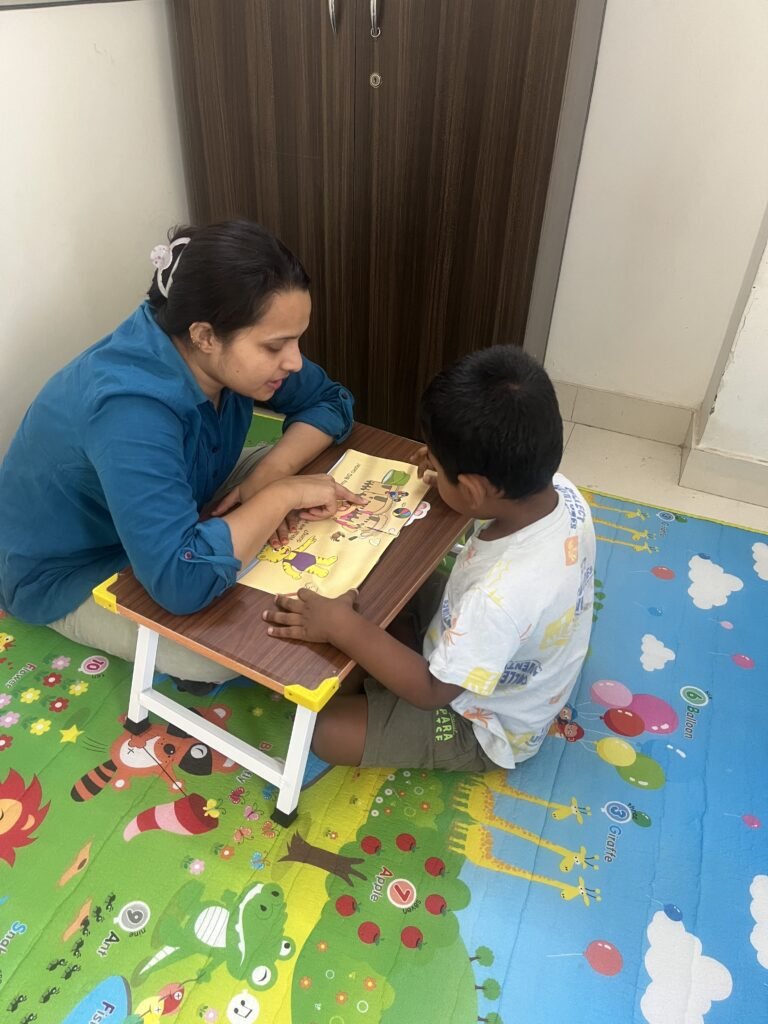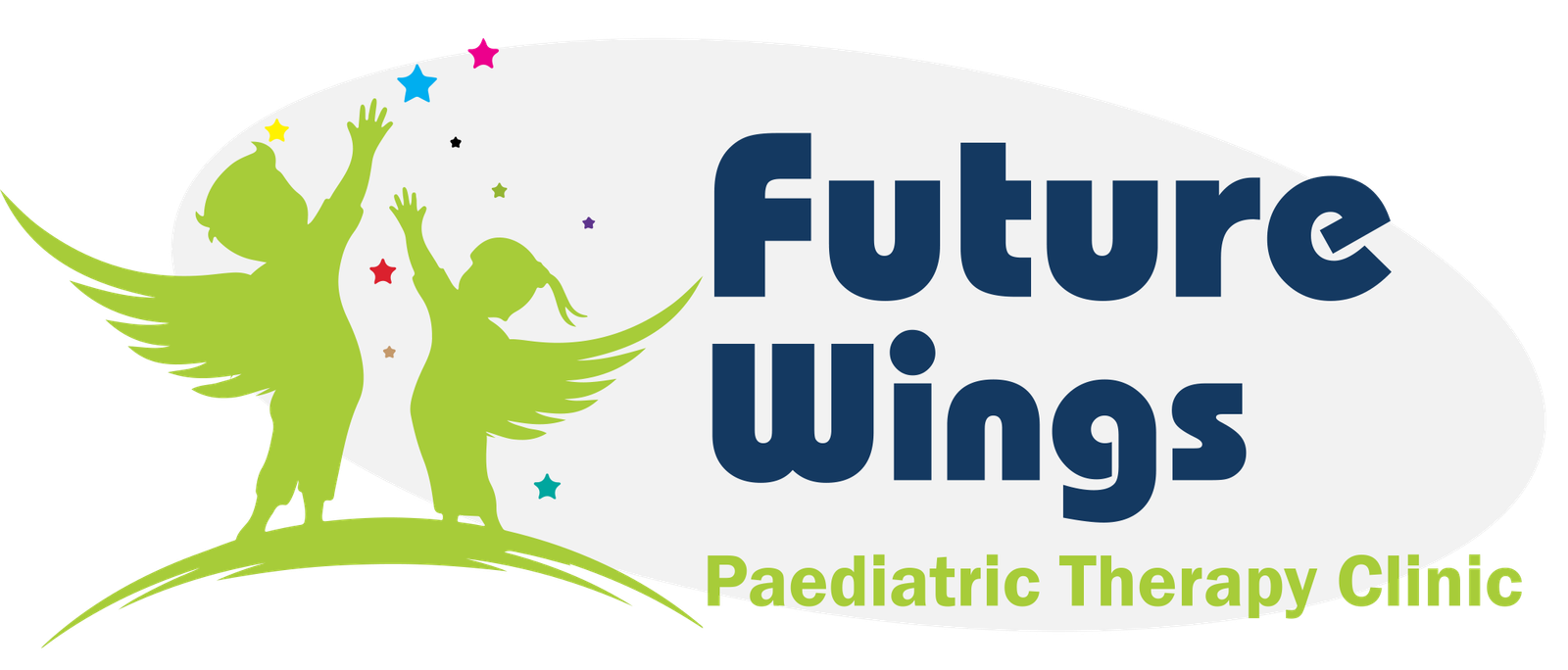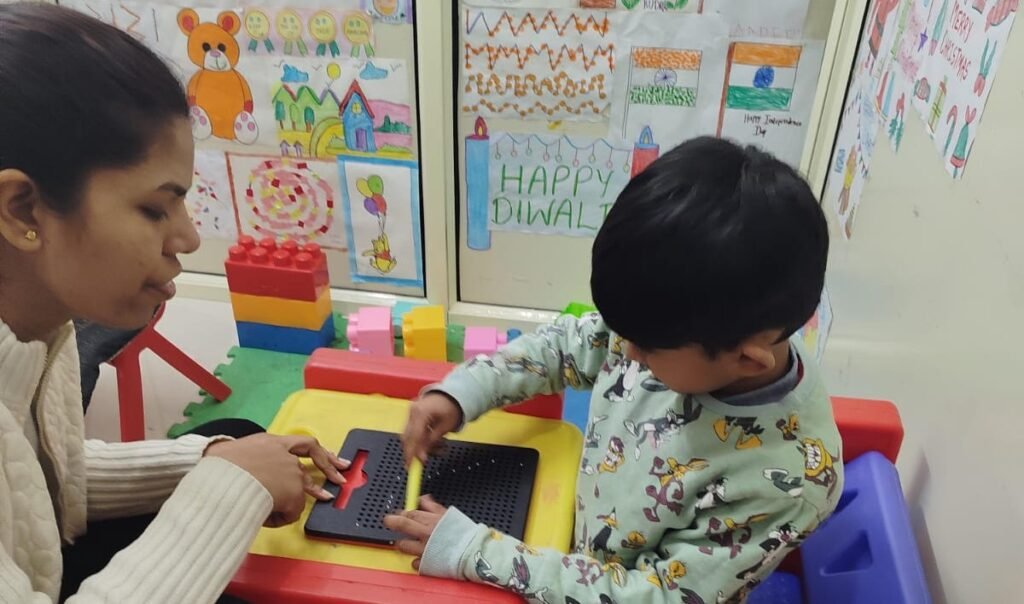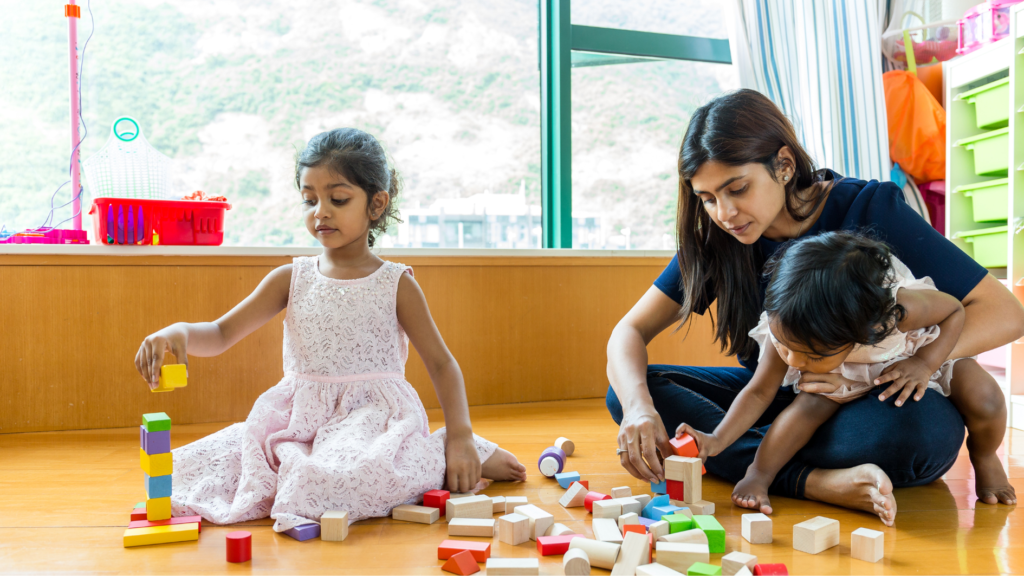Communication is not just about spoken words. It’s a beautiful interplay of gestures, expressions, and intentions that connect us with the world around us. For children with neurodevelopmental conditions, like Autism Spectrum Disorder (ASD), Attention Deficit Hyperactivity Disorder (ADHD), Down syndrome, or global developmental delays, this connection often begins with silence. Not by choice, but due to challenges in expressing themselves.
These children experience the world through unique lenses, but when their ability to communicate is impaired, their world becomes smaller, their needs go unmet, and their potential remains unheard. For them, communication is not just important, it’s essential. It helps them express their feelings, make choices, form relationships, learn new things, and find their place in a world that often moves too fast.
At Future Wings Clinic, Dwarka, Delhi, we provide a safe, supportive, and child-friendly environment that offers holistic care for children with speech and neurodevelopmental challenges. With a team of passionate speech therapists, occupational therapists, child psychologists, and developmental experts, the clinic offers individualised, evidence-based therapy plans rooted in empathy and scientific rigour.
At Future Wings, we believe that every child has a voice; it just needs the proper support to be heard.
Common Speech and Communication Challenges in Children
Children with neurodevelopmental disorders may face a wide range of speech and language issues, including:
- Delayed speech or complete absence of spoken language
- Limited vocabulary for their age
- Difficulty forming sentences or understanding complex instructions
- Articulation issues (unclear or mispronounced words)
- Stuttering or dysfluency
- Echolalia (repeating phrases without understanding)
- Lack of gestural communication or poor non-verbal skills
Early identification and timely intervention is crucial to make a significant difference in a child’s ability to communicate effectively, confidently and meaningfully.
A voice is a voice no matter how small.
John Doe Tweet
Approaches & Interventions in Speech Therapy
Speech-language therapy uses customized strategies based on the child’s age, diagnosis, and current level of communication. Some common and evidence-based approaches include:
Recent Posts
- How Occupational Therapy Helps Special and Neurodiverse Children Lead Self-Dependent Lives
- How Occupational Therapy Helps Children With Special Needs In Developing Essential Life Skills
- Top Features of an Effective Speech Therapy for Kids
- Top Five Benefits of Enrolling in Special Education for Kids
- Early Signs of Autism – What Parents Need to Know
- Articulation and Phonological Therapy: Helps children pronounce sounds clearly and correctly.
- Language Intervention Activities: Builds vocabulary, sentence formation, and comprehension through play-based and structured tasks.
- Augmentative and Alternative Communication (AAC): For non-verbal children, tools like picture boards, PECS, or speech-generating devices are introduced.
- Oral-Motor Therapy: Targets muscle strength and coordination for better speech production.
- Social Communication Therapy: Especially useful in autism, it helps improve turn-taking, greetings, body language, and eye contact.
- Parent-Implemented Interventions: Equips caregivers with strategies to reinforce communication in everyday life.
Top Features of an Effective Speech Therapy Program for Kids
- Individualized Therapy Plans
Tailored goals based on comprehensive assessments, strengths, and specific challenges of the child. - Multidisciplinary Collaboration
Involvement of occupational therapists, special educators, pediatricians, and psychologists when required. - Play-Based and Child-Led Sessions
Makes therapy engaging and effective by aligning with the child’s interests and developmental stage. - Parent and Caregiver Involvement
Empowers families to reinforce therapy at home, leading to faster and sustained improvement. - Use of Visual Supports & AAC
Supports children with limited verbal skills to communicate meaningfully. - Progress Tracking and Regular Feedback
Continuous monitoring to adjust goals and celebrate every milestone, no matter how small. - Safe, Warm, and Stimulating Environment
A child-friendly space that encourages interaction and learning.

Let’s Take the First Step, Together
If you’re concerned about your child’s development or daily functioning, know that you’re not alone. At Future Wings Clinic, we’re here to support you with compassion, expertise, and care that truly makes a difference.
Book a consultation today and let us help your child build the skills they need to thrive in school, at home, and in life.




